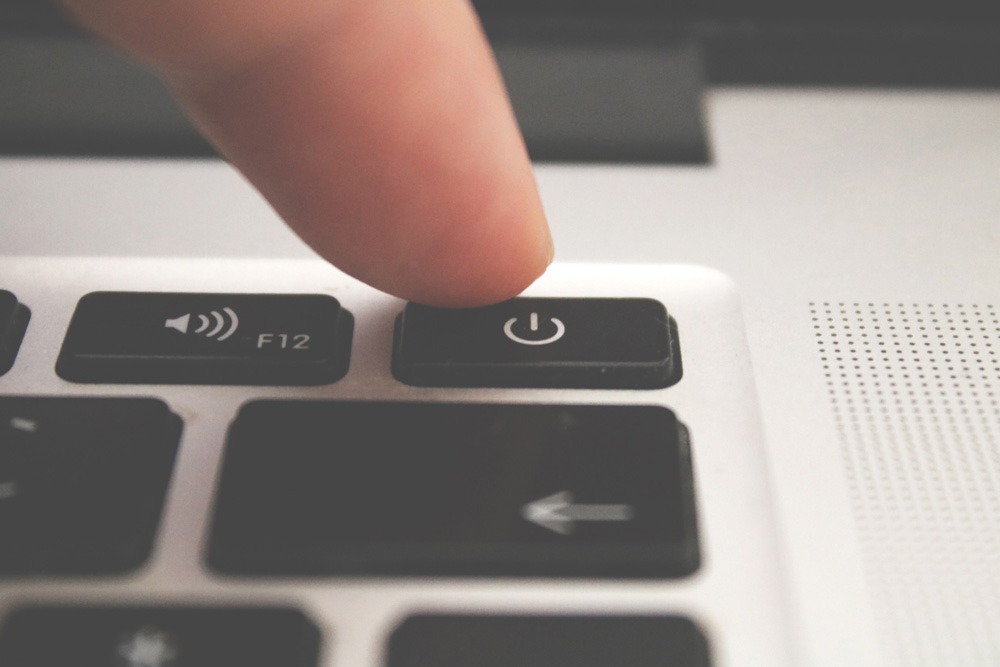Shame: how it works, how to release it
Carl Jung once said that shame is an emotion that eats out our soul. Undoubtedly, this is one of the heaviest emotional burdens one can carry. Deeply rooted in our sense of identity, it destroys our self-esteem and drives us away from others. In this article, you will learn how shame works and how to get rid of it.

The cloak you’re wearing
Imagine you are 5 years old. You are a light-hearted, trustful and joyful child who is just learning how to go about in this world.
Your happy-go-lucky attitude and spontaneity make you run around, jump and dance. You have your own world, where you play and do your thing, that is follow your impulses and go after your desires. Unfortunately, you are so full of energy that it is sometimes too much for the people around you. Your parents have already got tired of it. They also worry that you might disturb other people - neighbours, the couple on a date, sitting at the table next to you in the restaurant, people walking in the park, etc.
At some point, they decide to put some sort of cloak on you. A gray, dirty cloak with several stones in its pockets. It doesn’t seem that heavy, but still, it's neither easy nor pleasant to carry something like that. It constraints your moves. You can no longer jump, dance or run freely. The cloak limits your supermotility, which is exactly what your parents were after: have it easier for them to control your actions and avoid any surprises that might come up.
You are slowly getting used to wearing the cloak, and every time you try to play your favourite games or do something your own way (oblivious to what one should or should not do), something your parents do not approve, there are more heavy stones put in its pockets.
Years go by and you get so used to your cloak that you completely forget that you had it put on you without your consent. At some point, you just start treating your cloak as if it was a part of you. You get so used to this burden that you start to believe that it is part of your identity. The cloak and you have grown together, and the burden of the stones stuffed in the cloak’s pockets has become unbearable.

You keep carrying this weight on your shoulders, and yet you dream of being light-hearted, beaming and spontaneous again. You crave to be yourself again, unconstrained. Being deprived of freedom starts to bother you and you slowly become frustrated. Next, self-anger comes in. "I'm disgusting!", you say to yourself, but have the shabby cloak on your mind. "There is something awful and disgusting deep down inside me..." - you say to yourself, but keep thinking of the heavy stones hidden deep in the cloak’s pockets.
On the one hand, you feel an overwhelming burden that strips your life of joy and consider it as part of your identity. On the other hand, however, you criticize yourself for carrying this burden, thus adding even more stones into your cloak pockets.
"I don't deserve love"
"There is something wrong with me"
"I'm broken"
"I'm not good enough"
Unconscious family heritage
This cloak stands for shame, which is worn by almost everyone as it is an integral part of our culture. For the most part, it can be hidden in us so well that it may seem it is not even there. Our defense mechanisms are doing a great job in organizing our lives in such a way that the feeling of shame does not come to the surface and overwhelm us with its weight.
The cloak of shame can be taken off because this is not a feeling that we were born with. This burden is attained and learned. Often passed down from generation to generation as an unconscious family heritage.
This does not mean that the feeling of shame is useless. No emotion is unnecessary. Shame plays an important role in conformism, that is the ability to adapt to social norms. It helps us to meet the need of belonging and allows us to avoid rejection. Shame is like an inner jury that assesses our every action. When its appraisal is low, it is a signal for us to avoid such behavior next time, because we can be negatively seen by other people.
It is worth distinguishing between shame and guilt here. Guilt is the feeling of anxiety that you have done something wrong. It points out your particular action or behaviour. Shame, however, concerns our identity: it tells you that you are a bad person. It contains an overall negative value judgement of your self-worth.
By definition shame constraints the expression of our true nature, But as long as we feel only a pinch of shame, the cost of living within a society is not that high. After all, it was the ability to connect in groups that made our species go that far.
Unfortunately, our modern culture is plagued with chronic shame. This extremely aggressive variation of this feeling takes its toll as the leading cause of suicides, which number grows every year. In its less fierce variation, shame drives various destructive behaviors in our everyday life. It can cause workaholism, fear of failure, social anxiety disorder, neurosis and various addictions.
What are the mechanisms standing behind the feeling of shame and what can we do to take off this burdensome cloak?
Tool of control
"Good girls never get angry"
"You are spoiled"
"Don't be a cry-baby"
"Grow up"
"Behave! You are naughty"
"Don’t be such a child"
"Other children don't behave like that"
Most kids hear the above statements on a daily basis. They are one of the most effective parent control tools.
How is shame used to control children? One of the most difficult things a child can experience is not feeling loved. In the past, fear of rejection worked as a survival strategy, because a child not wanted by its parents was usually left to die. For example, when medicines were not as accessible as today, out of several sick children only some of them would get a cure, while the rest was left without help.
This fear is passed down through generations and that is why children will do anything to meet parents’ expectations and receive from them love and acceptance.

For parents, using this tactic is both convenient and effective (and quite natural, after all, we all used to hear such statements addressed to us when we were kids). Unfortunately, very few parents are aware of the fact that the child take such "shame triggers" as bare truth about them.
That is how beliefs are being deeply rooted in our psyche.
"I'm worse than other girls"
"I'm not trying hard enough"
"I should be ashamed of myself"
"I don't deserve a good life"
Such "heritage" will hunt a child for years, and unless that child, at some point, starts to see that just as you do while reading this article, it might live wearing this heavy, dirty cloak through its whole life.
Strategies for dealing with shame, i.e. internal critic in action
The hardest part of all this is that, even when we move out of the family home and do not have any contact with our parents on a daily basis, we still receive embarrassing and degrading messages, only now from ourselves. It is called the mechanism of introjection (according to the PWN Encyclopedia, introjection means "the process where the subject replicates in oneself thoughts, assessments and motives of the surrounding world, especially of other people, without clearly realizing the fact of doing so").
Why is this happening? Carrying such a great burden of shame, we do whatever it takes to prevent a situation in which others’ words or actions reawaken our shame. I deliberately do not use the word "trigger" because in most cases that shame already dwells in ourselves, frozen somewhere deep inside us, remembered by our body.
Most probably, it resulted from our parents’ actions, no matter how full of good intentions they were. In adult life, an unpleasant remark from a colleague or critical feedback from our boss should not have that much impact on us or be able to hurt us in such a strong way. And yet, for some of us, every such comment stabs us like a knife in the heart.

This happens because the surrounding world reawakens a sensitive and wounded part of our personality, which we have been holding onto for a long time. Awakened emotions come to the surface, while we have no idea of how this feeling is tightly connected with our experiences from the past.
Feeling such reawakened shame is extremely destructive to our daily balance, which is why we need defense mechanisms to help us keep this feeling deep in the realm of the subconscious. And strategies to prevent this type of situation from occurring at all.
What defense mechanisms we develop often depends on what strategies for dealing with life’s hardships we learn from our parents. Since our parents criticized, embarrassed and humiliated us (to get us to listen and behave), now it is, for the most part, self criticizing, embarrassing and humiliating that is our default to get rid of shame.
Wait a minute ... Are we shaming ourselves to avoid shame? At first glance, tt doesn't make any sense. However, please note that there is some logic in this strategy:
- Since I have been taught that my way of being is in many situations unacceptable to other people, and …
- ... I know that my inappropriate behaviour towards others can make me feel ashamed (because others may assess me negatively) ...
... when I control, criticize and embarrass myself, it will be easier for me to avoid such behaviours, thus avoid greater embarrassment.

For example:
- When I say to myself "you’d better keep quiet, because you have nothing smart to say anyway", I avoid the risk of saying something that others might view as "stupid".
- When I say to myself "your legs are curved and ugly and you are the worst dancer I know", I avoid the risk of being ridiculed on the dance floor.
- When I say to myself "don't even bother to go to this interview, they'll count you out as soon as they see your face", I avoid the risk of being rejected in the recruitment process.
All these internal "shame triggers" protect me from experiencing even more shame. The problem is that denigrating myself has serious consequences for my inner world. The part of me that wears this heavy cloak of shame becomes overburdened with that new load.
You can read more about defense mechanisms in the article Your Ego, Your Friend.
This growing load of hard-to-bear emotions trigger mental mechanisms that are to ease the pain we experience. Very often these can lead to addictions, which offer a momentary relief and distraction from the suffering. No wonder that shame (possibly in combination with other emotional burdens) is very often at the core of alcohol or drug abuse and pornography (some psychotherapists claim that toxic shame is a common experience for all addicted people).
Learning about the dynamics described above is crucial for understanding how shame works. It's an acquired emotional burden that we tend in ourselves, while craving to avoid it. One part of our personality holds on to that shame, another part of us amplifies it using various ways of self-criticism, and a whole different part seeks relief and release from the increasing load of difficult emotions.

Therefore, self-embarrassment and self-devaluation are strategies to regulate our own shame. Of course, we apply them not only within ourselves (through self-criticism) but also in the world around us. Criticizing other people also helps us feel better.
According to this simple rule:
"I do to myself what have been done to me. I do to others what I do to myself."
You don't have to look far to see a whole range of situations where people humiliate each other. Just spend a few minutes on the internet. Prejudice, racism, superiority, hatred - it's all there. At the core of such behaviour is internal suffering, from which the critic wants to escape by shaming other people. It only helps in the short term and does not release the burden we carry.
We get rid of shame in other ways, which tend to be not very constructive, such as:
- Pleaser. We do everything to make other people happy. We help, we do somebody else’s work for them, we stay after hours, we neglect ourselves for the sake of others - we do all this to avoid any criticism that can evoke a shame response in us;
- Workaholic. We work beyond our limits and strive for more achievements at all costs to prove our value to ourselves and to others. With any failure, we risk confronting the thought that we might not be good enough;
- Looser. We avoid achieving our goals because every activity involves a risk of failure. That is why we stay in our safe comfort zone, and make sure we don't do anything that might go wrong;
- Homebody. We become stay-at-home people and avoid going out because every social interaction can trigger shame response in us. Each conversation with other human implies a chance we say something stupid and others judge us harshly (of course, this does not mean that every homebody is escaping shame).
The variety and scale of defense mechanisms only shows how significant the feeling of shame is, and how destructive it can be. The entire structure of our personality can be focused on avoiding shame, which is at the core of these most sensitive parts of our subconscious.
Actions aimed at releasing shame can, therefore, lead to a significant transition of the way we live, think about ourselves and build relationships.
So, how can we get rid of shame?
Releasing shame
Before we talk about how to get rid of shame, let's remember one thing. All those beliefs you have about yourself, i.a. "I'm not good enough", "I'm worthless", "I don't deserve love" and so on, are messages we have received from others. Usually our parents and guardians, who wanted to gain more control over us, used these statements to put a cloak of shame on us and make us obey. And although sometimes we might believe it is true that "something is wrong with us", we must remember that it is a lie that, year after year, has sunk into our reality.
Of course, this knowledge alone is not enough. Shame is often deeply rooted in the way we think and act. Still, we know what to do to free ourselves of this burden. Keywords here are relationship, trust, revealing your weaknesses and compassion. Let's take a closer look on that.
Toni Herbine-Blank, a psychotherapist who developed the model for couples therapy called “Intimacy from the Inside Out”, believes shame works against our relationships. This means that when we experience shame, we move away from people. We are not interested in entering deeper relationships. We protect ourselves by focusing on ourselves and cutting off from the outside world. We hide our shame, which only makes it grow even more.
We might give the impression of wanting to be in a relationship, yet this is only a facade, because we maintain such a relationship at a very superficial level. We are afraid of getting hurt, so we hold ourselves back from opening our hearts.
Therefore, the antidote to our shame is to go in the opposite direction. When we connect with other people and begin to talk about the hard stuff, shame starts to "melt down".
Brene Brown, who wrote many books on shame, said:
“If we can share our story with someone who responds with empathy and understanding, shame can't survive.”
When we start to talk about our shame in a safe space, understanding and compassion, we begin to see that we deserve the love of others even when we carry all this baggage of difficult emotions. We begin to experience that we can be in an intimate relationship, regardless of what we think about ourselves.

Talking about your shame openly is not easy. I see two reasons for this:
- Firstly, our loved ones are not always able to listen to us with understanding and compassion, that is without judging or taking personally what we have said.
- Secondly, even when they are, in order to reveal our weaknesses, we will have to break through the wall of our defense mechanisms, i.e. those parts of our personality that want to prevent us from being vulnerable at all costs.
For many of us, finding the willingness and courage to talk openly about what we are so ashamed of may take weeks, months or even years.
However, I think that finding such a safe space for yourself is the most important step in shame work.
In most cases, the best way is to go to see a psychotherapist, with whom you can build a relationship of trust and become ready to work on yourself in the therapeutic process. Group therapy can also help in this way. When your turn comes during a session, you can tell your story and say aloud all the things you have, so far, been afraid of saying.
Research shows that the ability to tell our story honestly and openly helps to heal our shame. This way we can see that shame is a universal experience and that we all struggle with the same problems. As we come out of isolation, experience reconnecting with other people and allow ourselves to receive empathy and compassion from others, we start to heal.
"As long as we feel heard and acknowledged by other people, we have a chance to regain a sense of belonging. This foundation of being acknowledged and understood helps each of us become more of who we are to be. In this process of belonging and becoming ourselves, we are taking an important leap towards healing shame and regaining our integrity."
It is important that we feel safe with the person or group of people with whom we share our story. Firstly, forcing ourselves to talk about your vulnerable side with someone from whom we can't expect being listened to with attention and compassion will be a lot harder (if not impossible), and secondly, it is very risky. Being judged in such a situation can significantly expand our shame and make us withdraw even more from sharing about our feelings.
Fortunately, when working on shame, talking to others is not the only thing we can do. We also have a lot of self-work to do. Brene Brown uses an apt metaphor for that: to free ourselves of shame, we must first enter our inner "swamp" of difficult emotions. However, it is not about walking in and staying in this swamp. The idea is to put on decent wellies, walk through this swamp and find a way to get out of it.

Please note that entering this “swamp” does not mean letting difficult emotions overflood you. Good wellies help us move forward through this swamp, without getting stuck in it. We do not need to relive all these emotional burdens to release ourselves.
What we need is the ability to look at everything we don't like about ourselves with compassion. This is what Buddhist philosophy teaches us. It does not distinguish between compassion directed towards yourself and towards other people. It all starts with us and self-compassion is like a healing energy that will light up our every dark side.
Both of these paths merge into one. When I receive compassion from others, it is easier for me to look at myself with kindness and love. When I learn to direct this love towards myself, it is easier for me to open myself to the compassion of others.
So I let more and more light inside of me, gradually realizing that, in fact, everything is fine with my inner self.
I am worthy of love and acceptance.
I am good enough just as I am.
I deserve happiness and a good life.
